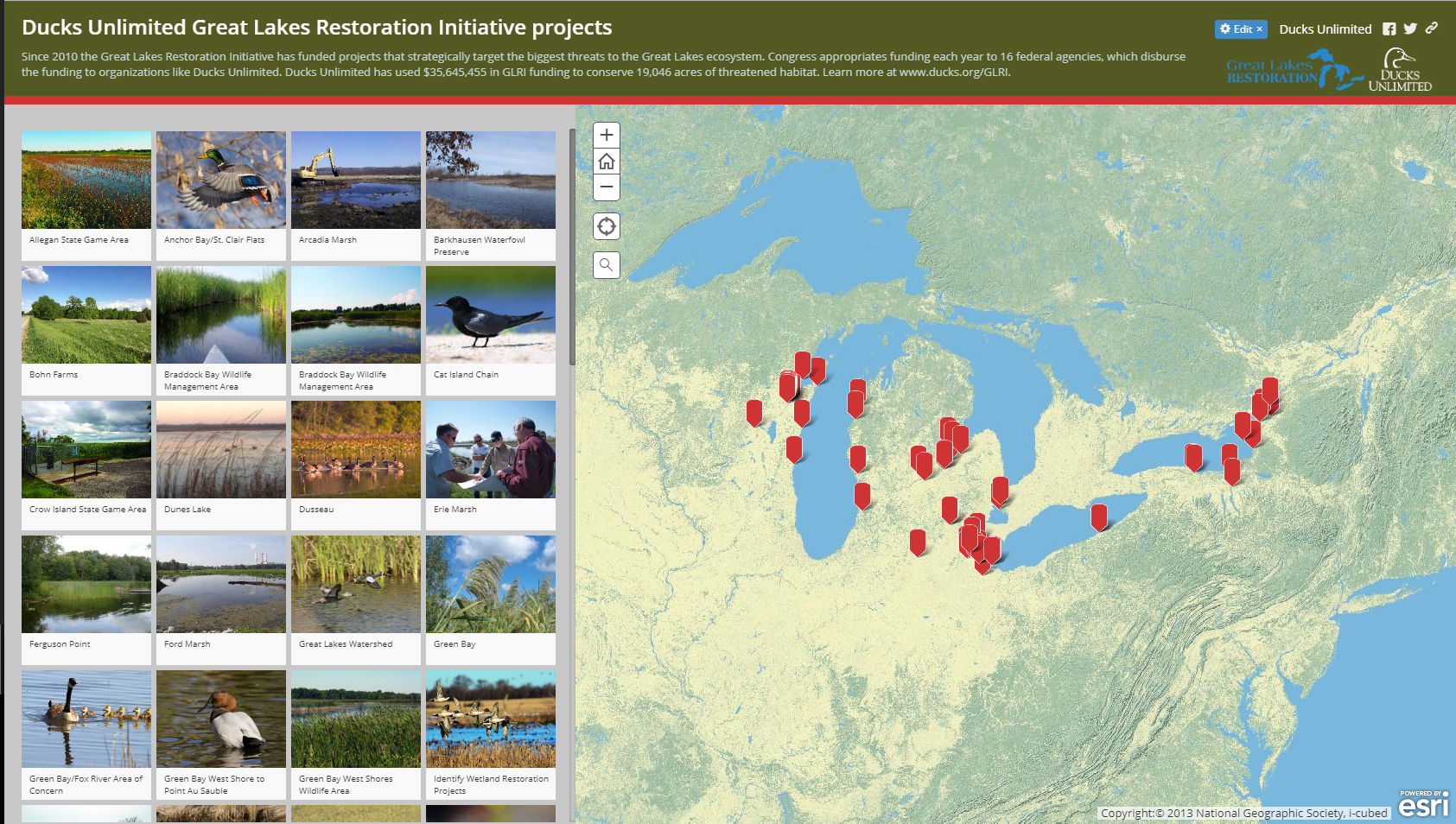Learn about other federal funding programs that benefit waterfowl habitat

The Land and Water Conservation Fund (LWCF) is a federal program created in 1964 to support land and water conservation through fee-title acquisition or use of easements by the federal or state governments. A portion of the fees companies pay to the federal government to drill offshore for oil and natural gas is the primary contribution to the fund, with minor additions coming from the sale of surplus federal real estate and taxes on motorboat fuel.
Learn more about LWCF
The bipartisan legislation supports fish and wildlife in the Great Lakes. It authorizes the U.S. Fish and Wildlife Service to work with states and other agencies to develop and execute proposals to conserve, restore and manage fish and wildlife populations and their habitats. The bill authorizes $6 million annually through 2021 to implement restoration projects and Fish and Wildlife Service activities in the Great Lakes region. It requires a 25 percent non-federal match of total project cost. Ducks Unlimited has used more than $35 million in GLRI funding to conserve more than 19,000 acres of habitat.

Explore interactive map of Ducks Unlimited's GLRI projects
Congress introduces Great Lakes Fish and Wildlife Restoration Act
Ducks Unlimited uses cookies to enhance your browsing experience, optimize site functionality, analyze traffic, and deliver personalized advertising through third parties. By continuing to use this site, you agree to our use of cookies. View Privacy Policy